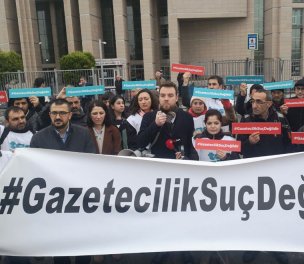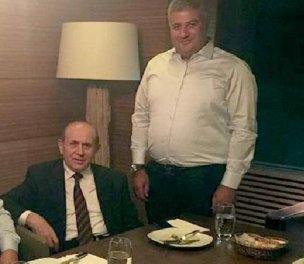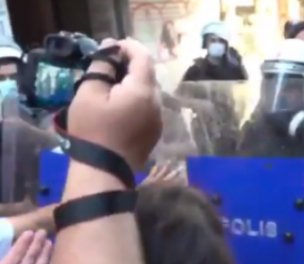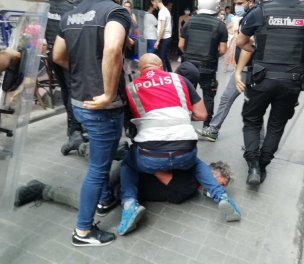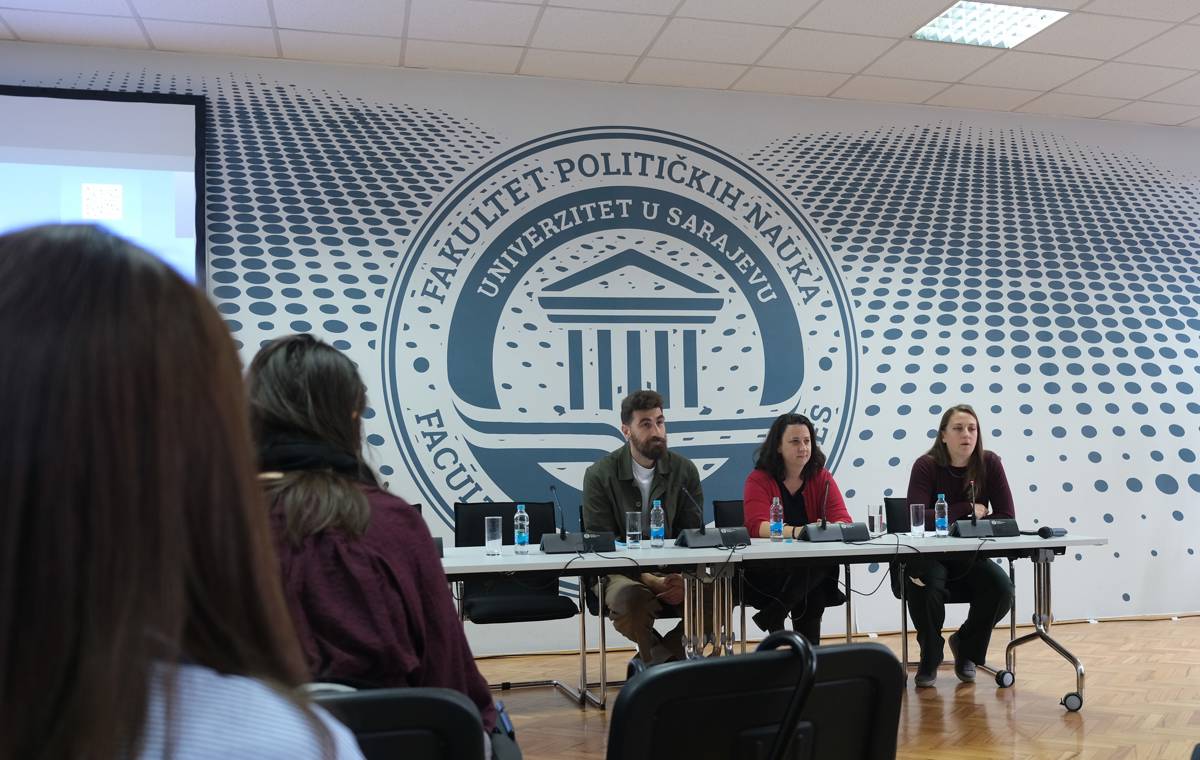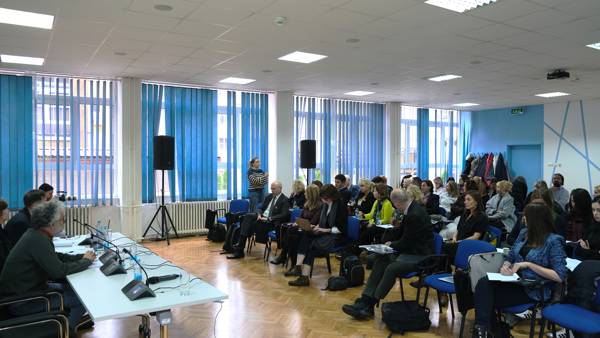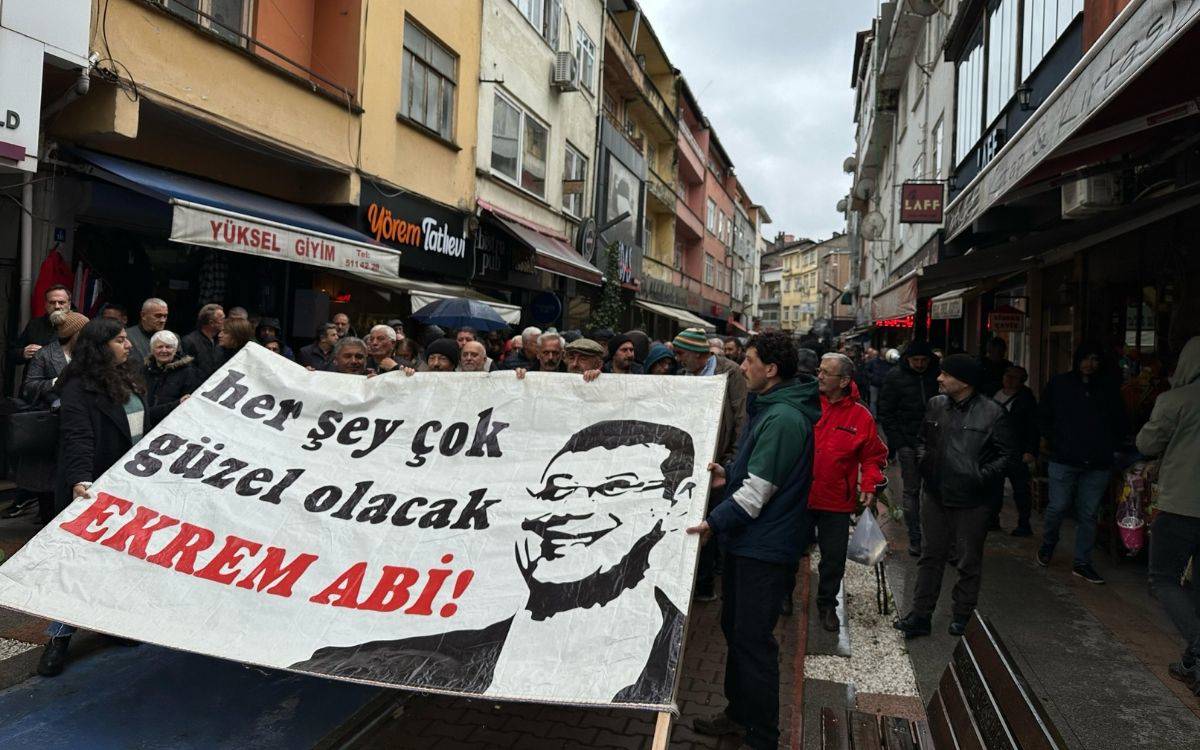People visiting the Atütürk Mausoleum to mark the Republic Day. (Photo: AA)
Summary of interferences with press freedom between October 25 and November 7, according to bianet's Media Monitoring Database:
Accreditation and censorship
Three media outlets known for their editorial lines critical of the government were not allowed to follow the official ceremony marking the foundation of the Republic on October 29.
President Recep Tayyip Erdoğan, opposition leaders, the parliamentary speaker, army chiefs and other senior government officials, as well as citizens, attended the ceremony at the Atatürk Mausoleum.
Reporters and camera operators for daily Cumhuriyet, FOX TV and Anka news agency were not allowed to enter the mausoleum because the Presidency Communications Directorate did not accredit them.
The Journalists' Union of Turkey criticized the directorate for preventing journalists, saying, "What has been done is not accreditation but censorship. End discrimination, don't violate the public's right to get information."
The Communications Directorate was founded in July 2018, after the country's switch to a presidential system in 2017.
Since then, journalism organizations have accused it of "partisanship" and hindering press freedom.
Holding the authority to issue press cards to journalists, the directorate hasn't renewed the cards of more than 1,300 journalists, including those who had "permanent press cards."
Read more:
'Turkey uses press cards to put pressure on journalists'
Journalists denied accreditation in district hit by wildfires
A struggle for a permanent press card
'Global colonial barons' attack Turkey's economy, says Erdoğan's communications director
Sexual assault case
Prosecutors have opened an investigation against Etkin News Agency (ETHA) editor Pınar Gayıp because of a news report about specialist sergeant Musa Orhan, who is accused of systematically torturing İpek Er, 18, and driving her to suicide last year. The journalist is facing the charge of "marking a counterterrorism official as a target."
Orhan has been dismissed as a soldier but hasn't been arrested.
Read more:
Actress Ezgi Mola fined for insulting former soldier facing charges of 'sexual assault'
İpek Er case: Court refuses to arrest Musa O.
Military officer charged with sexual assault released, İ.E. attempts suicide
Specialist sergeant remanded in custody for 'sexual assault' after outrage on social media
Specialist sergeant faces up to 17 years in prison for 'sexual abuse'
Özgür Gündem journalists
The trial of four Özgür Gündem journalists, editor-in-chief Hüseyin Aykol, managing editor Reyhan Çapan and columnist Hasan Başak and journalist Kemal Aykut, continued on November 3.
The journalists are charged with openly "inciting to commit crimes", "praising an offence and offender," "propagandizing for a terrorist organization."
The defendants and their lawyers did not attend the hearing on November 3. The court ruled that the execution of the warrants against the journalists should be awaited. The next hearing will be held on February 23, 2022.
The case was filed after Özgür Gündem published a news article titled "The Palace has gone crazy" on September 8, 2015. The "palace" refers to the Presidential Complex.
Özgür Gündem was closed down by a statutory decree during the state of emergency declared after the July 2016 coup attempt.
Its executives and journalists, as well as rights advocates who had participated in a solidarity campaign with the newspaper, are standing trial in several cases.
Read more:
Years after Özgür Gündem's closure, dozens of journalists still on trial
Özgür Gündem trials: 'Solidarity became a reason for imprisonment'
Constitutional Court: Özgür Gündem's closure was a violation of rights
Trial over Özgür Gündem raid: Prosecutor seeks punishment
About Özgür GündemFounded in May 1992, Özgür Gündem was the first pro-Kurdish daily newspaper in Turkey at a time of escalated conflict in the predominantly Kurdish populated eastern and southeastern regions. The newspaper survived less than two years before being closed down by a court in April 1994 due to its "connections" to the outlawed Kurdistan Workers' Party (PKK). During the time it was published, the newspaper was pulled off the shelves several times and its journalists were investigated over "terrorism" links. Also, dozens of its journalists and vendors, including renowned author and journalist Musa Anter, were assassinated in what is known as "the unsolved murders" during the conflict in the 1990s. Özgür Gündem reopened in 2011, at a time when the ruling Justice and Development Party (AKP) was running what it called a "resolution process" to the Kurdish question. In its second spell that lasted more than five years, Özgür Gündem was temporarily suspended several times and its journalists were sent to prison as well. During the state of emergency declared after the July 2016 coup attempt, Özgür Gündem was first temporarily suspended by a court and then was permanently closed down by a statutory decree in August 2016. |
"Insulting the president"
A court of first instance in Diyarbakır has sentenced journalist Perihan Kaya for "insulting the president" because of her social media posts.
In the first six months of the year, 25 journalists stood trial for insulting the president, according to the database.
About Media Monitoring DatabaseThe Media Monitoring Database is based on BİA Media Monitoring Reports, which have provided a dependable and concise account of rights violations concerning freedom of expression in Turkey since 2001. The Database aims to create a data center through which the cases and interventions against journalists and media outlets can be monitored. With the database, we bring together lawsuits and other legislative, judicial or administrative interferences with the right to freedom of expression of journalists and media organizations. Click for all Media Monitoring Database summary reports |
(VK)





.jpg)
